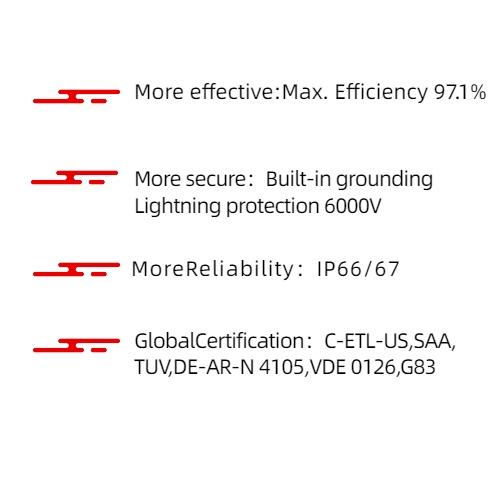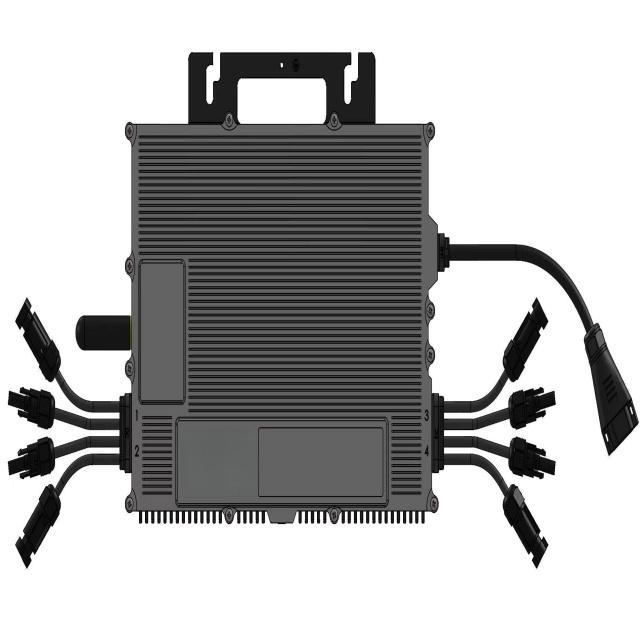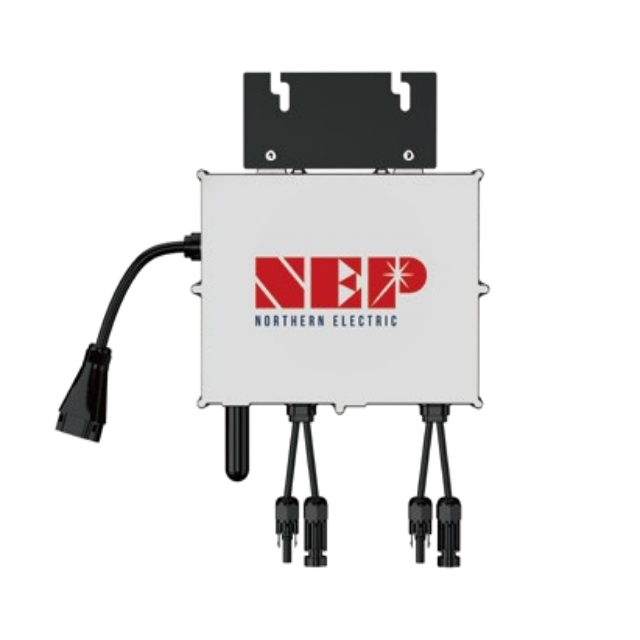![]() Price:
Negotiable
Price:
Negotiable
![]() Model: 96.5%
Model: 96.5%
![]() Power: 1600/2000W
Power: 1600/2000W
![]() Operating Temperature:
-40 ~ +65°C
Operating Temperature:
-40 ~ +65°C
![]() Weight: 2.9KG
Weight: 2.9KG
![]() Protection Class:
IP67
Protection Class:
IP67
![]() Dimensions: 268*250*42mm
Dimensions: 268*250*42mm
![]() Display:
Display:
![]() Cooling:
Cooling:
![]() Conversion Efficiency:
96.5%
Conversion Efficiency:
96.5%
![]() Certification: CE,
ISO
Certification: CE,
ISO
![]() Minimum Order Quantity:
1 SET
Minimum Order Quantity:
1 SET
![]() Trading Method:
FOB/CIF/EXW Xiamen Port
Trading Method:
FOB/CIF/EXW Xiamen Port
![]() Delivery Time: 90
Days
Delivery Time: 90
Days
![]() Place of Origin:
CHINA.
Place of Origin:
CHINA.
A 2000W microinverter is designed to handle a maximum power output of 2000 watts. It can be used with solar panels that have a combined power output of up to 2000 watts. Microinverters are usually installed on each individual solar panel in a system, allowing for better energy production tracking and increased system efficiency compared to traditional string inverters.

PV Micro Inverter Technical date:
|
AC power rating |
1600/2000W |
|
Max. AC output current |
18A |
|
Averaged efficiency |
96.50% |
|
Number of feed-in phases |
1 |
|
Number of MPP trackers |
4 |
|
Dimensions |
268 x 250 x 42mm |

Technical Features:
1. Power Output: A 2000W micro inverter is capable of converting up to 2000 watts of DC power into AC power, suitable for powering small to medium-sized residential or commercial solar installations.
2. Input Voltage Range: It typically has a wide input voltage range, allowing it to work efficiently with different solar panel configurations. The specific input voltage range may vary depending on the product model.
3. Maximum Power Point Tracking (MPPT): A micro inverter usually features MPPT technology, which enables it to extract maximum power from the solar panels by continuously adjusting the DC input voltage and current to find the optimal operating point.
4. Efficiency: The efficiency of a micro inverter refers to how effectively it converts DC power into AC power. High-efficiency micro inverters can reach conversion efficiencies of around 95%, minimizing energy losses and maximizing system performance.
5. Monitoring and Communication: Many micro inverters offer built-in monitoring and communication capabilities. This allows users to easily monitor the real-time performance of each solar panel and the overall system through a web-based interface or a mobile app.
6. Safety and Protection: Micro inverters often come with built-in protection mechanisms to safeguard the system. These can include features such as rapid shutdown, overvoltage protection, overcurrent protection, and temperature monitoring.
7. Design and Size: Micro inverters are generally compact in size and designed to be easy to install. They can often be mounted directly on the back of each solar panel or on a racking system, eliminating the need for a central inverter.
Solar Micro Inverter Product Applications:
Educational and Research Projects: Micro inverters are popular in educational institutions and research projects. Their monitoring capabilities allow students and researchers to analyze and study the performance of individual panels, conduct experiments, and gain insights into solar energy generation and optimization.
Community Solar Projects: Micro inverters can be used in community solar installations where multiple participants share the benefits of a single solar array. They enable accurate tracking of energy production per participant, simplifying billing and ensuring fair distribution of generated electricity.
Building-Integrated Photovoltaics (BIPV): Micro inverters can be integrated into building materials that have photovoltaic capabilities, such as solar roof tiles or solar windows. This allows for seamless integration of renewable energy generation into the building’s design, while still providing the benefits of individual panel monitoring and increased energy yield.
Retrofitting and System Upgrades: Micro inverters can be used to retrofit existing solar PV systems that originally used string inverters. By replacing the central inverter with micro inverters, the system can benefit from increased energy production, individual panel monitoring, and enhanced safety without having to replace the entire installation.
Solar Panels Micro Inverter Main Functions:
Safety and Reliability: Micro inverters enhance safety by converting DC power at the panel level rather than at a central inverter. This reduces the risk of high-voltage DC wiring and makes maintenance and repairs safer. Additionally, if one panel or micro inverter fails, the rest of the system can continue to operate at optimal capacity.
System Flexibility and Scalability: Micro inverters provide flexibility in system design. Each panel operates independently, allowing for varying panel orientations, shading conditions, and panel types within the same installation. This also makes it easier to expand the system in the future by simply adding more panels and micro inverters.
Increased Energy Yield: Micro inverters maximize energy yield by mitigating the effects of partial shading or panel mismatch. As each panel operates independently, the overall system is not limited by the lowest-performing panel or affected by shaded areas of the array.
Grid-Interactive Capabilities: Micro inverters facilitate grid-interactive functionality, allowing solar systems to be connected to the electric grid. They ensure that excess energy generated by the solar panels can be efficiently fed back into the grid or stored for later use with the help of energy storage systems.

A 2000W microinverter is designed to handle a maximum power output of 2000 watts. It can be used with solar panels that have a combined power output of up to 2000 watts. Microinverters ...

Solar Micro Inverters are innovative devices designed for converting the direct current (DC) produced by solar panels into alternating current (AC) electricity. Unlike traditional strin...

A micro inverter with a power rating of 400W is suitable for smaller residential or commercial-scale solar installations. It can accommodate a single solar panel or multiple panels wire...
